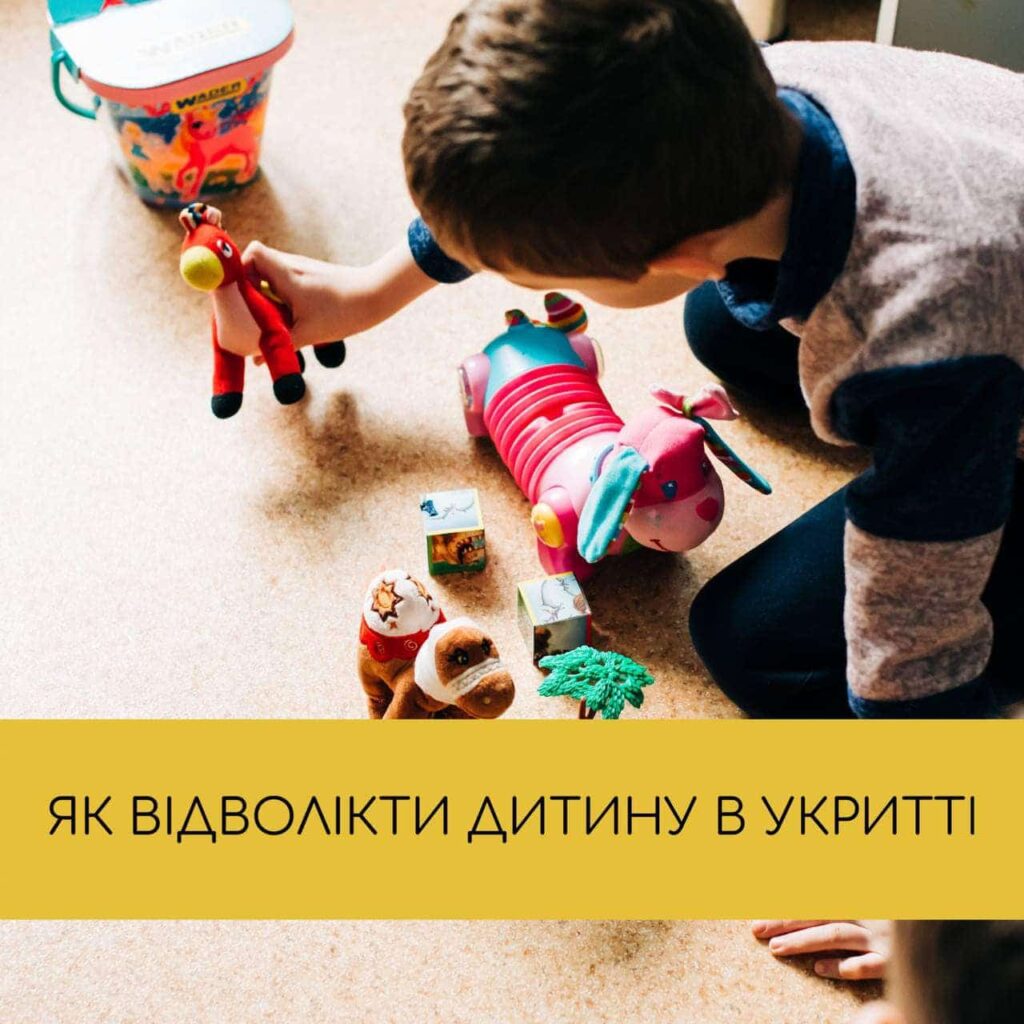The time spent in the bomb shelter is increasing. Confined space, strangers, poor lighting, tense adults. The child "reads" the danger. How to distract a child in a shelter?
- Massage games. More hugs, more physicality - it gives a sense of security. We stroke, hug, pinch lightly, draw letters or shapes on the back or arm - and the child has to guess what it is. If the child does not like tactile contact, we show it to him or her and ask the child to repeat it.
- Breathing exercises. It is good for the body - we saturate the organs with oxygen, it also has a calming effect and does not require special training. We can imagine a cake with candles on it and ask them to blow them out one by one. If we have paper or cotton wool, we make small balls, make an imaginary goal and compete to see who can blow their ball to the goal faster. We offer to imagine a small cat or a hedgehog on your hand that needs to be warmed with your breath. We ask the child to put his hand on his stomach and imagine that there is a balloon that needs to be inflated and deflated.
- Origami. We make ships and animals out of paper, if we have it on hand. We have to be careful with airplanes, as they can be associated with danger. It's better not to do this yet, so as not to cause fear.
- Rhyming poems. When repeated, they have a certain rhythm. And this rhythm calms us down, regulates our breathing, because when we are anxious, our breathing is erratic, shallow and intermittent. When we restore our breathing, we calm down. You can chant words or even just vowel sounds. We can adjust the sound - first a whisper, then louder, louder, and then quiet again.
- Crocodile. We show an animal, and then everyone guesses who it is.
- A hut. We take blankets or rugs and make a hut. It gives the child a sense of security and calms him down.
- Mirror. Make complex elements, and let the child repeat after you. You can invite other children to join the game and then change.
- A fairy tale together. Everyone comes up with a phrase, and the other continues. Usually it turns out to be something funny and incomprehensible, but the kids love it.
Whatever the external circumstances, life goes on. The task of adults is to help children cope with these circumstances and protect their childhood, no matter what.
Let's take care of ourselves!
Psychological support hotline fromPledges» the number 0 800 4000 23 is available:
- free
- throughout the territory of Ukraine
- from all mobile operators
- for calls from abroad +38 050 493 03 07
Our page in Facebook

